About Valley Hope of O’Neill
This facility is tucked in a pristine neighborhood in rural, north central Nebraska. The surrounding trees create a sense of reconnecting with nature. This fosters calm and reflection during recovery. The food is top-tier and the amenities are top rated. This includes spacious semi-private rooms with large beds, elegantly furnished living rooms and an entertainment lounge with billiards and table tennis.
Unsurprisingly they prioritize quality and individualized care. You only need to see the beautiful testimonies from past patients to understand how outstanding their quality of care truly is. Their Joint Commission accreditation is a further validation of that. Their multidisciplinary care professionals are highly skilled and committed to your recovery journey. This includes addiction counselors, physicians and psychiatrists. Others are nurses, case managers and even chaplains. The reason is that their recovery approach includes spiritual care as a core component of “whole person” treatment. Whole person treatment addresses the physical, psychological and spiritual aspects of addiction.
Medical detox takes place at their highly structured and therapeutic inpatient care units. Detox involves assessment, stabilization and 24/7 monitoring by highly skilled physicians. These experts may administer medicine if necessary to ensure a comfortable and safe detox. Detox only weans off addiction related toxins from your body and prepares you for the main therapy.
You’ll ideally continue with their inpatient treatment following detox. This program helps you focus on healing, build self-worth and develop the life skills necessary for lasting recovery. It involves intensive therapy with round the clock support by their recovery team.
Their recovery approach blends the 12-step philosophy with proven therapy techniques like cognitive behaviroral therapy delivered in group, individual sessions and family sessions. You’ll participate in over 40 hours of therapy weekly. This of course includes pastoral sessions.
Most of the sessions focus on developing/strengthening your coping skills, relapse prevention and building healthy relationships. Addiction education is provided to help you better understand the nature of substance use including its consequences and recovery pathways.
Their evidence based approach also incorporates medication assisted treatment. This technique uses FDA approved medicine and counseling to address opioid or alcohol addiction. Medicines like buprenorphine are used to manage withdrawal symptoms. This enables you to understand therapy.
Other recovery activities encompass outdoor and indoor recreation. This contributes to overall wellness and relaxation. Comments from past clients reflect a positive experience and exceptional quality of care. Their customized discharge plan and aftercare services may include referral to their outpatient program for continued or connection to community resources for ongoing support. This facility offers return to work assistance.
Latest Reviews
We appreciate your kind words about our kitchen team, and we also take your concerns seriously. While we can’t discuss individual circumstances here publicly, what you’ve described is not the experience we want anyone to have at Valley Hope. Your feedback matters, and it will be shared with the appropriate leaders so we can continue improving the care we provide.
We sincerely wish you strength, support, and connection as you continue pursuing your recovery.
While every individual’s recovery journey is unique, the concerns you’ve raised are not reflective of Valley Hope’s approach to care today. Our clinical teams follow evidence-based practices, patient choice, and trauma-informed care. No one is ever required to take medication or engage in any activity they are uncomfortable with.
Because your comments touch on deeply personal medical and therapeutic history, we would welcome the opportunity to talk privately, hear more, and address your concerns directly. If you’re willing, please reach out to us at info@valleyhope.org
or call (800) 544-5101 so we can connect you with the appropriate team member.
We sincerely wish you continued healing and peace on your path forward.
Rehab Score
Gallery
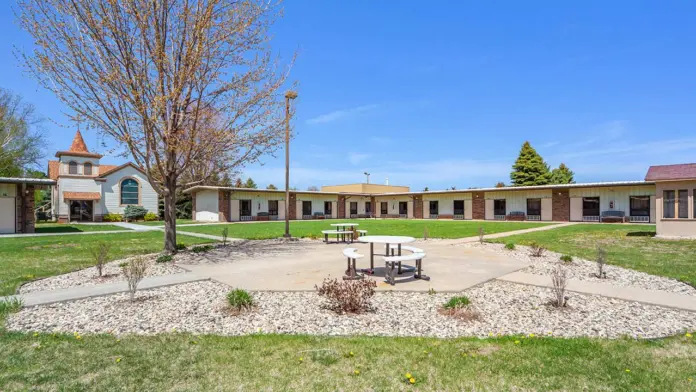



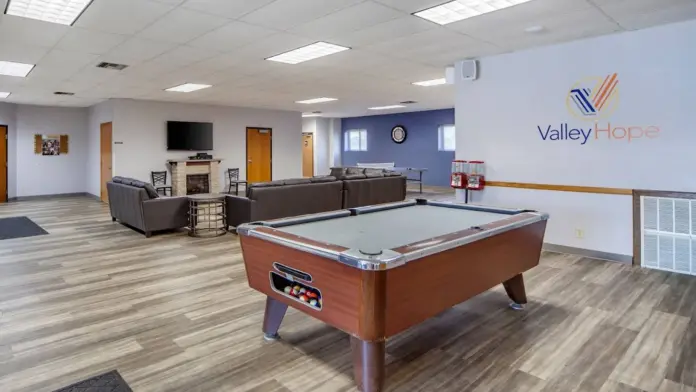
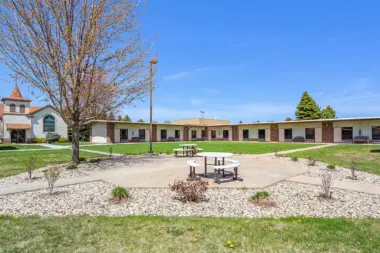
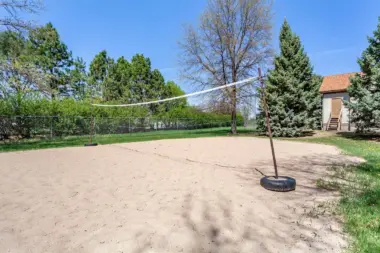
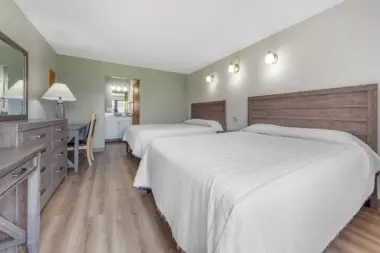
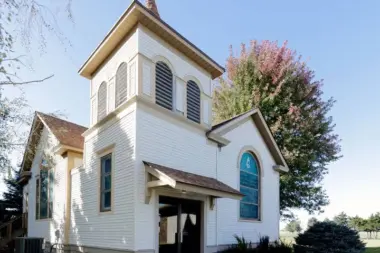
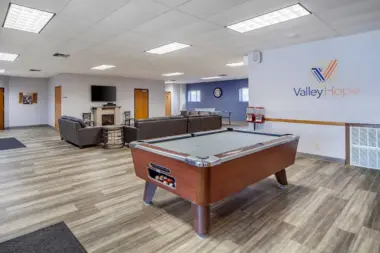
Other Forms of Payment
Private insurance refers to any kind of healthcare coverage that isn't from the state or federal government. This includes individual and family plans offered by an employer or purchased from the Insurance Marketplace. Every plan will have different requirements and out of pocket costs so be sure to get the full details before you start treatment.
Self-pay involves paying for treatment out of your own pocket. You can use savings or credit, get a personal loan, or receive help from family and friends to fund your treatment. If you don't have insurance or your insurance plan doesn't cover a specific program, self-pay can help ensure you still get the care you need.
Military members, veterans, and eligible dependents have access to specific insurance programs that help them get the care they need. TRICARE and VA insurance can help you access low cost or no cost addiction and mental health treatment. Programs that accept military insurance often have targeted treatment focused on the unique challenges military members, veterans, and their families face.
Addiction Treatments
Levels of Care
Drug and alcohol addiction often takes a heavy toll on one’s body. Over time, a physical dependence can develop, meaning the body physiologically needs the substance to function. Detox is the process of removing drugs and/or alcohol from the body, a process that can be lethal if mismanaged. Medical detox is done by licensed medical professionals who monitor vital signs and keep you safe, healthy, and as comfortable as possible as you go through detox and withdrawal. For patients dependent on alcohol or other drugs, medically monitored detoxification eases withdrawal in a safe, supportive environment. Detoxification usually lasts just a few days and is done under the supervision of doctors and nurses at Valley Hope residential treatment center. Each patient is given a complete physical including a lab profile and monitored 24/7 throughout the withdrawal period. When necessary, medications are used to reduce the severity of withdrawal symptoms. When detoxification is complete, patients can move on to the next phase in their continuum of care as a resident or outpatient.
Residential treatment programs are those that offer housing and meals in addition to substance abuse treatment. Rehab facilities that offer residential treatment allow patients to focus solely on recovery, in an environment totally separate from their lives. Some rehab centers specialize in short-term residential treatment (a few days to a week or two), while others solely provide treatment on a long-term basis (several weeks to months). Some offer both, and tailor treatment to the patient's individual requirements. Residential addiction treatment at Valley Hope offers full-time care in a structured environment. They strongly believe in a 30-day treatment program. However, individual patient needs are always considered in determining length of stay. Most patients experience a residential treatment program that averages 17-30 days in length.
12-step programs are addiction recovery models based on Alcoholics Anonymous (AA). A number of substance abuse programs (including some drug and alcohol rehab centers) use the 12 steps as a basis for treatment. Beginning steps involve admitting powerlessness over the addiction and creating a spiritual basis for recovery. Middle steps including making direct amends to those who've been hurt by the addiction, and the final step is to assist others in addiction recovery in the same way. 12-Step offshoots including Narcotics Anonymous (NA), Cocaine Anonymous (CA), Dual Recovery Anonymous (DRA), Sex and Love Addicts Anonymous (SLAA) and Gamblers Anonymous (GA).
Completing a drug or alcohol rehab program shouldn't spell the end of substance abuse treatment. Aftercare involves making a sustainable plan for recovery, including ongoing support. This can include sober living arrangements like halfway houses, career counseling, and setting a patient up with community programs like Alcoholics Anonymous (AA) or Narcotics Anonymous (NA).
Outpatient rehabs are often ideally suited for clients exiting intensive inpatient care, those who are medically stable, and those not at an elevated relapse risk. They also offer flexibility for clients who may be unable to leave their work or family to receive inpatient care. Many outpatient treatment centers provide a full suite of services, including recovery education, medication assisted treatment (MAT), and individual, group, and family counseling. Ancillary services, including peer coaching and vocational training, are widely available.
24-hour clinical care in Nebraska lowers the risk of complications during detox. If you detox on your own, you may experience life-threatening symptoms such as seizures or heart palpitations that require medication to treat. In a supervised clinical setting, medical staff can provide this treatment and monitor your health 24/7. You'll receive tailored treatment to ensure a safe and more comfortable detox that allows you to overcome drug or alcohol dependence.
Treatments
The goal of treatment for alcoholism is abstinence. Those with poor social support, poor motivation, or psychiatric disorders tend to relapse within a few years of treatment. For these people, success is measured by longer periods of abstinence, reduced use of alcohol, better health, and improved social functioning. Recovery and Maintenance are usually based on 12 step programs and AA meetings.
During drug rehab in Nebraska, you'll participate in therapies that address the many issues that contribute to addiction. Treatment includes physical, mental, emotional, and relational aspects. These methods provide the tools you need to achieve long-term recovery.
Many of those suffering from addiction also suffer from mental or emotional illnesses like schizophrenia, bipolar disorder, depression, or anxiety disorders. Rehab and other substance abuse facilities treating those with a dual diagnosis or co-occurring disorder administer psychiatric treatment to address the person's mental health issue in addition to drug and alcohol rehabilitation.
Opioid rehabs specialize in supporting those recovering from opioid addiction. They treat those suffering from addiction to illegal opioids like heroin, as well as prescription drugs like oxycodone. These centers typically combine both physical as well as mental and emotional support to help stop addiction. Physical support often includes medical detox and subsequent medical support (including medication), and mental support includes in-depth therapy to address the underlying causes of addiction.
Substance rehabs focus on helping individuals recover from substance abuse, including alcohol and drug addiction (both illegal and prescription drugs). They often include the opportunity to engage in both individual as well as group therapy.
Programs
Adult rehab programs include therapies tailored to each client's specific needs, goals, and recovery progress. They are tailored to the specific challenges adult clients may face, including family and work pressures and commitments. From inpatient and residential treatment to various levels of outpatient services, there are many options available. Some facilities also help adults work through co-occurring conditions, like anxiety, that can accompany addiction.
Young adulthood can be an exciting, yet difficult, time of transition. Individuals in their late teens to mid-20s face unique stressors related to school, jobs, families, and social circles, which can lead to a rise in substance use. Rehab centers with dedicated young adult programs will include activities and amenities that cater to this age group, with an emphasis on specialized counseling, peer socialization, and ongoing aftercare.
Clinical Services
Research clearly demonstrates that recovery is far more successful and sustainable when loved ones like family members participate in rehab and substance abuse treatment. Genetic factors may be at play when it comes to drug and alcohol addiction, as well as mental health issues. Substance use disorder (SUD) affects more than just the person struggling with the disease. It impacts every member of the family. At Valley Hope, they understand the problems families face and offer a range of programs designed to alleviate feelings of fear, guilt, frustration and resentment. Through compassion and understanding, they help families heal and recover together.
Group therapy is any therapeutic work that happens in a group (not one-on-one). There are a number of different group therapy modalities, including support groups, experiential therapy, psycho-education, and more. Group therapy involves treatment as well as processing interaction between group members.
In individual therapy, a patient meets one-on-one with a trained psychologist or counselor. Therapy is a pivotal part of effective substance abuse treatment, as it often covers root causes of addiction, including challenges faced by the patient in their social, family, and work/school life.
Nutrition therapy, aka medical nutrition therapy (MNT), is a way of treating physical, emotional, and medical conditions through diet. Specific dietary plans are designed by professional nutritionists or registered dietitians, and patients follow them in order to positively affect their physical and mental health.
Amenities
-
Private Setting
-
Residential Setting
Accreditations

The Joint Commission, formerly known as JCAHO, is a nonprofit organization that accredits rehab organizations and programs. Founded in 1951, the Joint Commision's mission is to improve the quality of patient care and demonstrating the quality of patient care.
Joint Commission Accreditation: Yes

LegitScript has reviewed Valley Hope of O’Neill as part of their certification program, and has determined that it meets the LegitScript standards for legality, safety and transparency.
LegitScript verified in June 2020

The National Association of Addiction Treatment Providers (NAATP) is a professional association that represents organizations in the field of addiction services. Founded in 1978, NAATP's mission is to advance addiction services and ensure that high-quality addiction treatment is available and accessible.
NAATP Member: Yes
Member ID: 1535
Contact Information
1421 North 10th Street
Oneill, NE 68763
